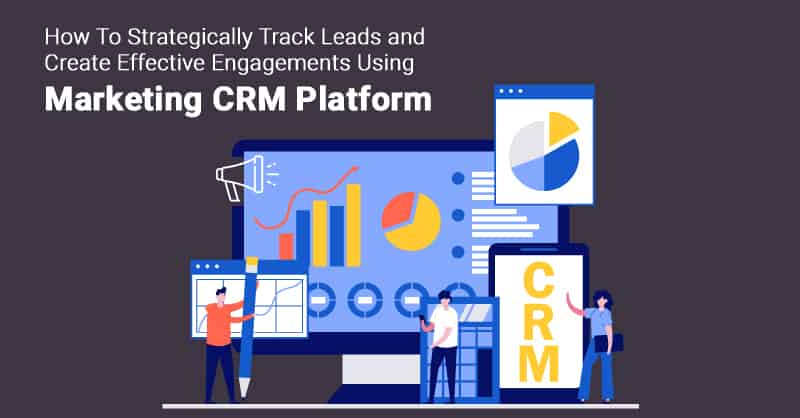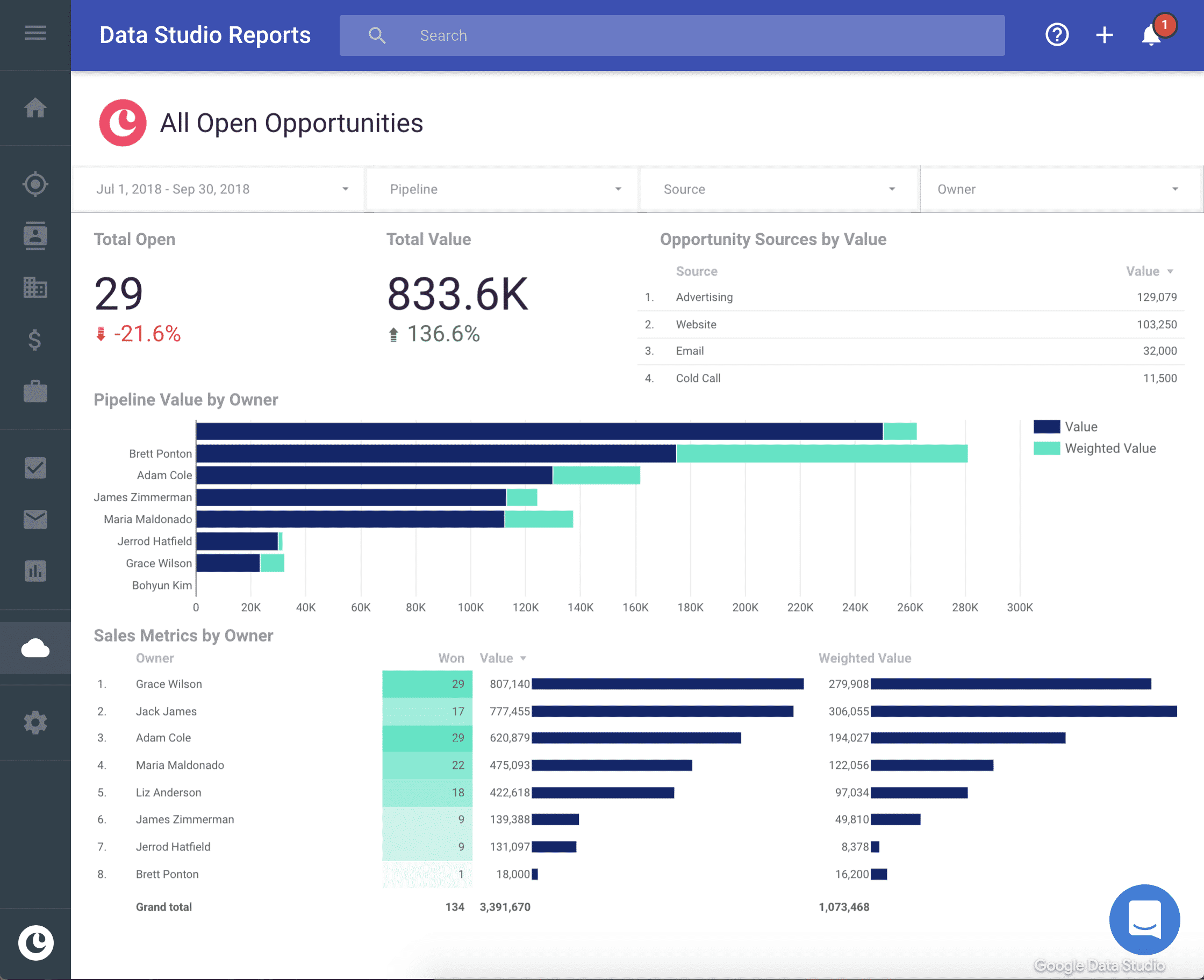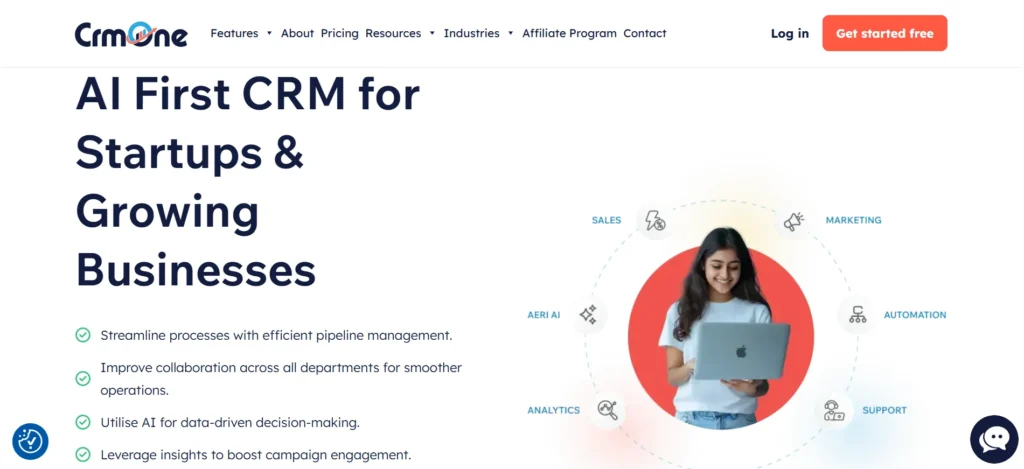
The Power of CRM Marketing Platforms: A Deep Dive
In today’s fast-paced business environment, staying ahead of the competition requires more than just a great product or service. It demands a deep understanding of your customers, their needs, and their behaviors. This is where the power of a CRM (Customer Relationship Management) marketing platform comes into play. A CRM marketing platform is not just a tool; it’s a strategic asset that empowers businesses to build stronger customer relationships, streamline marketing efforts, and ultimately, drive revenue growth. This comprehensive guide will delve into the intricacies of CRM marketing platforms, exploring their functionalities, benefits, and how to choose the right one for your business.
Understanding the Fundamentals: What is a CRM Marketing Platform?
At its core, a CRM marketing platform is a centralized system designed to manage all interactions with current and potential customers. It serves as a single source of truth for all customer data, providing valuable insights into their preferences, purchase history, and engagement patterns. Unlike a traditional CRM system that primarily focuses on sales and customer service, a CRM marketing platform integrates marketing automation tools, allowing businesses to nurture leads, personalize customer experiences, and measure the effectiveness of their marketing campaigns.
Think of it as the brain of your marketing operations. It gathers data from various touchpoints, including your website, social media channels, email interactions, and sales interactions. This data is then analyzed to create a 360-degree view of each customer, enabling you to tailor your marketing messages and offers to their specific needs and interests.
Key features of a CRM marketing platform typically include:
- Contact Management: Storing and organizing customer contact information, including names, addresses, phone numbers, and email addresses.
- Lead Management: Tracking leads through the sales funnel, from initial contact to conversion.
- Marketing Automation: Automating repetitive marketing tasks, such as email marketing, social media posting, and lead nurturing.
- Segmentation: Grouping customers based on shared characteristics, such as demographics, purchase history, or engagement level.
- Campaign Management: Creating and managing marketing campaigns, including email campaigns, social media campaigns, and advertising campaigns.
- Reporting and Analytics: Tracking key marketing metrics, such as website traffic, lead generation, conversion rates, and ROI.
The Benefits of Implementing a CRM Marketing Platform
The advantages of using a CRM marketing platform are numerous and far-reaching, impacting various aspects of your business, from customer acquisition to retention. Here are some of the most significant benefits:
Improved Customer Relationships
At the heart of any successful business lies strong customer relationships. A CRM marketing platform allows you to build and nurture these relationships by providing a personalized and consistent customer experience. By understanding your customers’ needs and preferences, you can tailor your marketing messages and offers to resonate with them on a deeper level. This leads to increased customer satisfaction, loyalty, and ultimately, advocacy.
Enhanced Marketing Efficiency
Marketing automation features within a CRM platform streamline your marketing efforts, freeing up valuable time and resources. You can automate repetitive tasks such as email marketing, social media posting, and lead nurturing, allowing your marketing team to focus on more strategic initiatives. This leads to increased efficiency, reduced costs, and a higher ROI on your marketing investments.
Increased Lead Generation and Conversion Rates
A CRM marketing platform helps you identify and nurture leads more effectively. By tracking lead behavior and engagement, you can tailor your marketing messages to their specific interests and needs. This leads to a higher lead conversion rate and ultimately, increased sales.
Improved Sales Team Performance
By providing your sales team with a centralized view of customer data, a CRM marketing platform empowers them to close deals faster and more efficiently. Sales representatives can access customer information, track interactions, and manage their sales pipelines, leading to improved sales performance and increased revenue.
Data-Driven Decision Making
CRM marketing platforms provide valuable insights into your marketing performance. By tracking key metrics, such as website traffic, lead generation, conversion rates, and ROI, you can identify what’s working and what’s not. This data-driven approach allows you to make informed decisions about your marketing strategy, leading to improved results and a higher return on your investment.
Choosing the Right CRM Marketing Platform for Your Business
Selecting the right CRM marketing platform is a crucial decision that can significantly impact your business’s success. With numerous platforms available in the market, it’s essential to carefully evaluate your needs and choose a platform that aligns with your specific requirements. Here’s a step-by-step guide to help you make the right choice:
1. Define Your Needs and Goals
Before you start evaluating different platforms, take the time to define your specific needs and goals. What are you hoping to achieve with a CRM marketing platform? What are your key marketing objectives? What are your current pain points? By understanding your needs and goals, you can narrow down your options and choose a platform that best fits your requirements.
2. Assess Your Budget
CRM marketing platforms come in various price ranges, from free and open-source options to enterprise-level solutions. Determine your budget and stick to it. Consider the total cost of ownership, including the platform’s subscription fees, implementation costs, and any ongoing maintenance or support costs.
3. Evaluate Features and Functionality
Different CRM marketing platforms offer different features and functionalities. Make a list of the features that are essential for your business. Consider features such as contact management, lead management, marketing automation, segmentation, campaign management, and reporting and analytics. Ensure that the platform you choose offers the features you need to achieve your goals.
4. Consider Integration Capabilities
Your CRM marketing platform should integrate seamlessly with your existing business systems, such as your website, e-commerce platform, and social media channels. Check the platform’s integration capabilities to ensure that it can connect with the tools you already use. This will streamline your workflow and improve data accuracy.
5. Evaluate User Experience
The user experience of the CRM marketing platform is crucial. Choose a platform that is easy to use and navigate. Consider the platform’s interface, ease of use, and training resources. A user-friendly platform will increase adoption rates and improve productivity.
6. Research Vendor Reputation
Research the vendor’s reputation and customer reviews. Read online reviews, check the vendor’s website, and contact other businesses that use the platform. This will give you a better understanding of the platform’s reliability, support, and overall customer satisfaction.
7. Request Demos and Trials
Request demos and free trials of the platforms you’re considering. This will allow you to test the platform’s features, evaluate its user experience, and determine if it’s the right fit for your business. Take advantage of the opportunity to ask questions and get a feel for the platform’s capabilities.
Top CRM Marketing Platforms in the Market
The CRM marketing landscape is competitive, with numerous platforms vying for your attention. Here’s a look at some of the top players in the market:
HubSpot
HubSpot is a leading CRM marketing platform that offers a comprehensive suite of tools for marketing, sales, and customer service. It’s known for its user-friendly interface, robust marketing automation capabilities, and extensive integration options. HubSpot is a great choice for businesses of all sizes, from small startups to large enterprises.
Salesforce Marketing Cloud
Salesforce Marketing Cloud is a powerful enterprise-level CRM marketing platform that offers advanced features for marketing automation, email marketing, social media marketing, and advertising. It’s a good choice for businesses with complex marketing needs and a large customer base.
Zoho CRM
Zoho CRM is a versatile CRM marketing platform that offers a wide range of features at an affordable price. It’s a good choice for small to medium-sized businesses that are looking for a comprehensive CRM solution.
ActiveCampaign
ActiveCampaign is a popular marketing automation platform that also offers CRM functionality. It’s known for its powerful automation capabilities, email marketing features, and user-friendly interface. ActiveCampaign is a good choice for businesses that want to automate their marketing efforts and nurture leads effectively.
Pipedrive
Pipedrive is a sales-focused CRM platform that helps sales teams manage their pipelines, track leads, and close deals. It’s a good choice for businesses that are looking for a CRM solution to improve their sales performance.
Maximizing the Value of Your CRM Marketing Platform
Once you’ve chosen and implemented a CRM marketing platform, the work doesn’t stop there. To maximize the value of your investment, you need to continuously optimize your platform and marketing strategies. Here are some tips to help you get the most out of your CRM marketing platform:
1. Data Migration and Cleansing
Ensure that your customer data is accurate and up-to-date. Before implementing the platform, migrate your existing data and cleanse it to remove any duplicates or errors. Regularly update and maintain your data to ensure its accuracy.
2. Data Segmentation and Personalization
Segment your customers based on their characteristics, behaviors, and preferences. Use this segmentation to personalize your marketing messages and offers. Tailor your content, email campaigns, and website experiences to resonate with each segment.
3. Automation Workflows
Leverage the platform’s automation capabilities to streamline your marketing processes. Automate repetitive tasks such as email marketing, lead nurturing, and social media posting. This will free up your time and resources and allow you to focus on more strategic initiatives.
4. Tracking and Analytics
Track key marketing metrics, such as website traffic, lead generation, conversion rates, and ROI. Analyze your data to identify what’s working and what’s not. Use this data to optimize your marketing campaigns and improve your results.
5. Training and Adoption
Provide adequate training to your team on how to use the platform effectively. Encourage adoption by highlighting the benefits of the platform and providing ongoing support. Ensure that your team understands how to use the platform to its full potential.
6. Continuous Optimization
Regularly review and optimize your CRM marketing platform and marketing strategies. Stay up-to-date with the latest trends and best practices in CRM marketing. Experiment with new features and functionalities to improve your results.
The Future of CRM Marketing Platforms
The CRM marketing landscape is constantly evolving, with new technologies and trends emerging. Here are some of the key trends to watch out for:
Artificial Intelligence (AI) and Machine Learning (ML)
AI and ML are transforming the way businesses interact with their customers. CRM marketing platforms are incorporating AI and ML to automate tasks, personalize customer experiences, and provide valuable insights. Expect to see more AI-powered features in CRM marketing platforms in the future.
Hyper-Personalization
Customers are demanding more personalized experiences. CRM marketing platforms are enabling businesses to deliver hyper-personalized content, offers, and interactions. This trend will continue to grow as businesses strive to create more relevant and engaging customer experiences.
Mobile-First Approach
Mobile devices are becoming increasingly important for marketing. CRM marketing platforms are adapting to the mobile-first approach by providing mobile-friendly interfaces and features. Expect to see more mobile-focused features in CRM marketing platforms in the future.
Focus on Customer Experience
Customer experience is becoming a key differentiator for businesses. CRM marketing platforms are helping businesses to improve their customer experience by providing a 360-degree view of the customer, enabling them to personalize interactions, and streamline customer service. This trend will continue to grow as businesses focus on building stronger customer relationships.
Conclusion: Embracing the Power of CRM Marketing
In conclusion, a CRM marketing platform is a powerful tool that can transform your marketing efforts and drive revenue growth. By understanding the fundamentals, benefits, and how to choose the right platform, you can leverage its capabilities to build stronger customer relationships, streamline your marketing efforts, and achieve your business goals. Embrace the power of CRM marketing and unlock the potential for lasting success.


